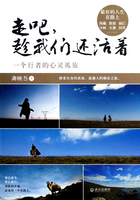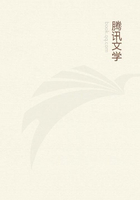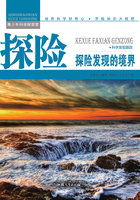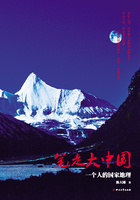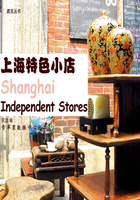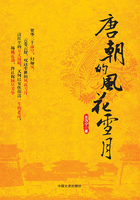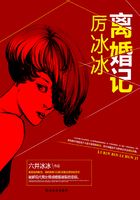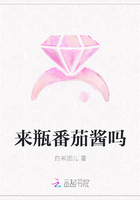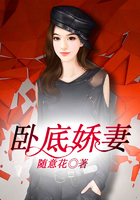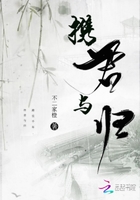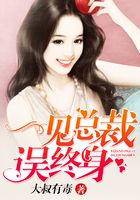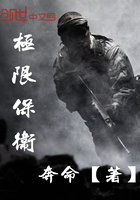中国素有戏剧大国之称。中国的戏剧艺术,历史悠久,品种繁多。本篇介绍的是中国戏剧的起源、京剧和其他一些主要剧种的艺术特点。
1.中国传统戏剧何时初具规模的?
When did the forms of traditional Chinese opera begin to be perfected?
Opera is the most ancient form of theater that still flourishes in China today. It combines acting, singing, poetry, dialogue and acrobatics. The origins of Chinese theatre go far back into history. Most elements of voice, instrumentation, dancing and acrobatics existed during the Han Dynasty. However, the operatic forms began to be perfected during the 12th century.
Notes:1)flourish茂盛;2)dialogue对话;3)acrobatics杂技;4)instrumentation乐器(演奏)法
2.传统戏剧有什么表演特点?
What are the performance features of the traditional opera?
It is generally believed that traditional Chinese opera has taken shape as an artistically advanced form of theatre. It conveys the idea of time and space to the audience through staged performances, and it features unique solo singing, refined acting, rich percussion and irresistibly funny comedians. A performance focuses on four traditional characters. Actors or actresses draw on the tradition in which they are well versed to give performances without previous thought or preparation. Originally, Chinese opera was performed before a simple backdrop, with the other three stage sides remaining open and empty. The setting itself was also extremely simple, but over centuries, actors or actresses have developed a set of sophisticated stylized stage symbolism. This includes a table, which might stand for an official’s table, a hill or a bridge. The action is based on illusion. Gestures, footwork and other body movements express actions such as riding a horse, rowing a boat, opening a door, going up stairs, climbing a hill or traveling. In a word, each action of a performer is highly symbolic.
Notes:1)artistically艺术地;2)entertainment娱乐;3)convey传达;4)performance演奏;5)solo独唱;6)percussion敲打乐器;7)irresistibly不可抵抗地;8)comedian喜剧演员;9)swirl旋转;10)backdrop背景幕;11)sophisticated复杂的;12)symbolism象征性;13)illusion幻觉;14)gesture姿势;15)footwork步法
3.传统戏剧的角色有什么特点?
What is the feature of the character roles of the traditional opera?
Character roles in traditional opera are generally divided into four main types according to the sex, age, social status and profession of the character. They are sheng (生), dan (旦), jing (净) and chou (丑).
Sheng refers to male roles. These can be subdivided into different types, including zhengsheng (正生), xiaosheng (小生) and wusheng (武生). Zhengsheng refers to a bearded, middle-aged or elderly man who plays the part of a positive character; xiaosheng refers to a young man whose gesture is unrestrained and footwork brisk; wusheng is a military general between 30 and 55 years old.
Dan refers to female roles. These can be subdivided into the following different types: laodan (老旦), qingyi (青衣), huadan (花旦) and wudan (武旦). Laodan refers to an old woman. Qingyi refers to a refined young or middle-aged woman, who is often in a dark pleated skirt and is portrayed as a positive character. Huadan refers to a girl or young woman in a jacket and pants. She appears shrewish or active. During the performance, she speaks more and sings less. Wudan refers to woman with martial skills. This character mainly shows her martial skills rather than singing or talking.
Jing refers to roles with painted faces. Jing or hualian (painted faces) refers to male roles that have a frank personality and unrestrained movement. Their facial makeup is multi-colored.
Chou, or clown, is a comic character which can be recognized at first sight for his special makeup (a patch of white paint on his nose). Chou is the main role in a comedy or a satirical opera. It can be subdivided into wenchou (文丑, male clowns), wuchou (武丑, clowns with martial skills) and danchou (旦丑, female clowns). They mainly play the part of positive characters. But sometimes they also act as negative characters.
Notes:1)profession职业;2)unrestrained无限制的;3)pleated起褶的;4)portray表现;5)shrewish泼悍的;6)martial尚武的;7)personality个性;8)satirical爱挖苦人的;9)negative反面的
4.传统戏剧的脸谱有什么特点?
What is the facial makeup of traditional opera?
When you are watching an opera, what impresses on you the most may be the“painted face.”Facial patterns date far back in history. Ancient Chinese actors sometimes wore masks known as“dummy faces.”Later, painted patterns replaced the mask. Facial patterns follow a set mode in composition, sketching and coloring. The patterns use multi-colored exaggeration and symbolism to suggest a character’s personality, and painted faces become what the Chinese call“a mirror of the soul.”From the painted faces, Chinese audiences can instantly tell the personality of characters on the stage.
Audiences have long become accustomed to the facial patterns and expression. Generally speaking, red face makeup (红脸) refers to loyal and upright persons; black face makeup (黑脸) refers to faithful and straightforward persons; white face makeup (白脸) refers to imperious and treacherous persons; multi-colored face makeup (五彩脸) refers to ghosts and gods; the white makeup between eyes and nose (小花脸) indicates a clown’s face, which appears funny and humorous.
Notes:1)dummy假的;2)mask假面具;3)facial面部的;4)sketch概略地叙述;5)exaggeration夸张;6)instantly立即;7)upright正直的;8)straightforward正直的;9)imperious专横的;10)treacherous背叛的;11)humorous诙谐的
5.脸谱按照图案分类有哪些类型?
How many kinds can the facial makeup be divided into according to its pattern features?
In accordance with facial makeup patterns, the facial makeup falls into another four types as below:
Zhenglian (整脸, whole-face facial makeup)
Zhenglian refers to a whole-face makeup pattern. Typically paint the whole face with one color, and then outline eyebrows, eyes, nose, and facial lines. It aims to display the personality of a character in a play.
Sankuai Walian (三块瓦脸, three piece facial makeup)
This makeup refers to left-and-right-side makeup patterns produced on the basis of a whole-face makeup pattern. This type seems incomplete, and it is divided by the mouth and nose on the same face.
Huasankuai Walian (花三块瓦脸, flowered three piece facial makeup)

